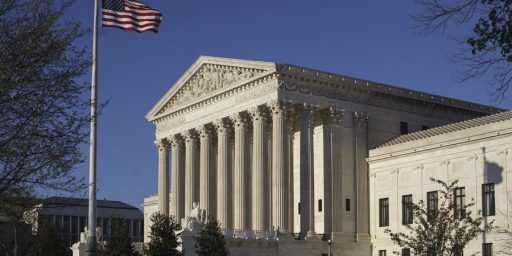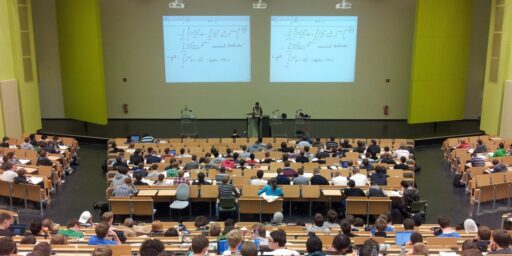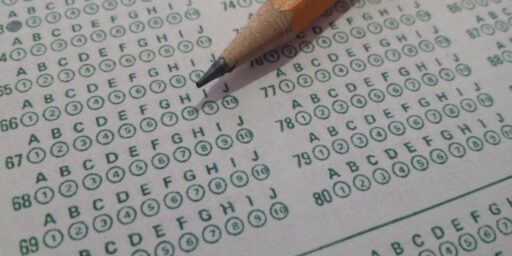CONSEQUENCES
Erik Jaffe at The Volokh Conspiracy has some interesting observations on, what else, the Michigan cases:
. . . less “elite” law schools than Michigan might have a substantially more difficult time defending their affirmative action policies in light of the interaction between Grutter and Gratz. One of the differences between the cases that I see is that admission for minority applicants to the law school was not virtually automatic (only 35% of minority applicants were admitted). At the undergraduate level, however, any minimally qualified (read “breathing”) minority candidate was admitted. At mid-tier law schools, however, it is likely that an affirmative action policy would almost have to accept any minimally qualified candidate given the practical limits of the applicant pool, the cream-skimming by elite schools, and the need to admit a “critical mass.” At some point along the scale of law schools, it will be utterly impossible to admit a critical mass of minority candidates because there will be no more candidates left to admit, their having all been pulled up to higher-tier law schools.
Of course, nothing in the Court’s ruling yesterday requires law schools to try to achieve a “critical mass” of minority students. Schools are certainly free to simply admit the students with the best grades and standardized test scores. But, if they are politically or otherwise motivated to artificially raise their minority enrollment, they may well face these problems. Jaffe’s other point is less novel but certainly worth bearing in mind:
The sad consequence of this second observation is that students at non-elite law schools either will receive a racially non-diverse education or they will be exposed to progressively less-qualified candidates as schools have to dig disproportionately deeper in order to admit minorities. (That the problem is not merely linear is a function of the critical mass of students being a greater percentage of the student population than the percentage of minority students in the applicant pool as a whole.) The result is all the more problematic given that if no affirmative action were used, all minority applicants would still be able to go to law school, but most would go to a school of slightly lower ranking than otherwise. At schools more likely suited to their academic abilities, they would contribute as much as at a marginally more elite school, and they would perform more consistently in line with their classmates of similar academic background and ability. Now THAT would break down stereotypes far better than artificial elevation into academically “elite” institutions. It’s comforting to know that the true “compelling” interest in this case is in helping high-ranked law schools improve their image. Surely the marginal educational difference for the entire population of law students and for society of having more minorities attend a Top-10 law school rather than attending schools 11-20, etc., is limited at best.
One would think. Not to mention, of course, that everyone will naturally assume that any minority graduate of these schools got in based on a lowered standard.






It occurs to me that one could (should?) merely lie about one’s minority status. Having trouble getting into your favorite uber-33l33t law school? Insist you’re a member of [whatever minority seems to be popular this year]; if this is questioned, claim a genetic abnormality is inhibiting the expression of these genes. They can’t force you to get a DNA analysis, and it’s not all that clear that DNA is a defining characteristic of a “minority” anyway.
Maybe I can market this plan, much like the “clean your credit record” scams of yore…
There is a similar problem with faculty hiring — top-tier schools suck everything up leaving a smaller pool for mid and lower-tier schools to compete for.